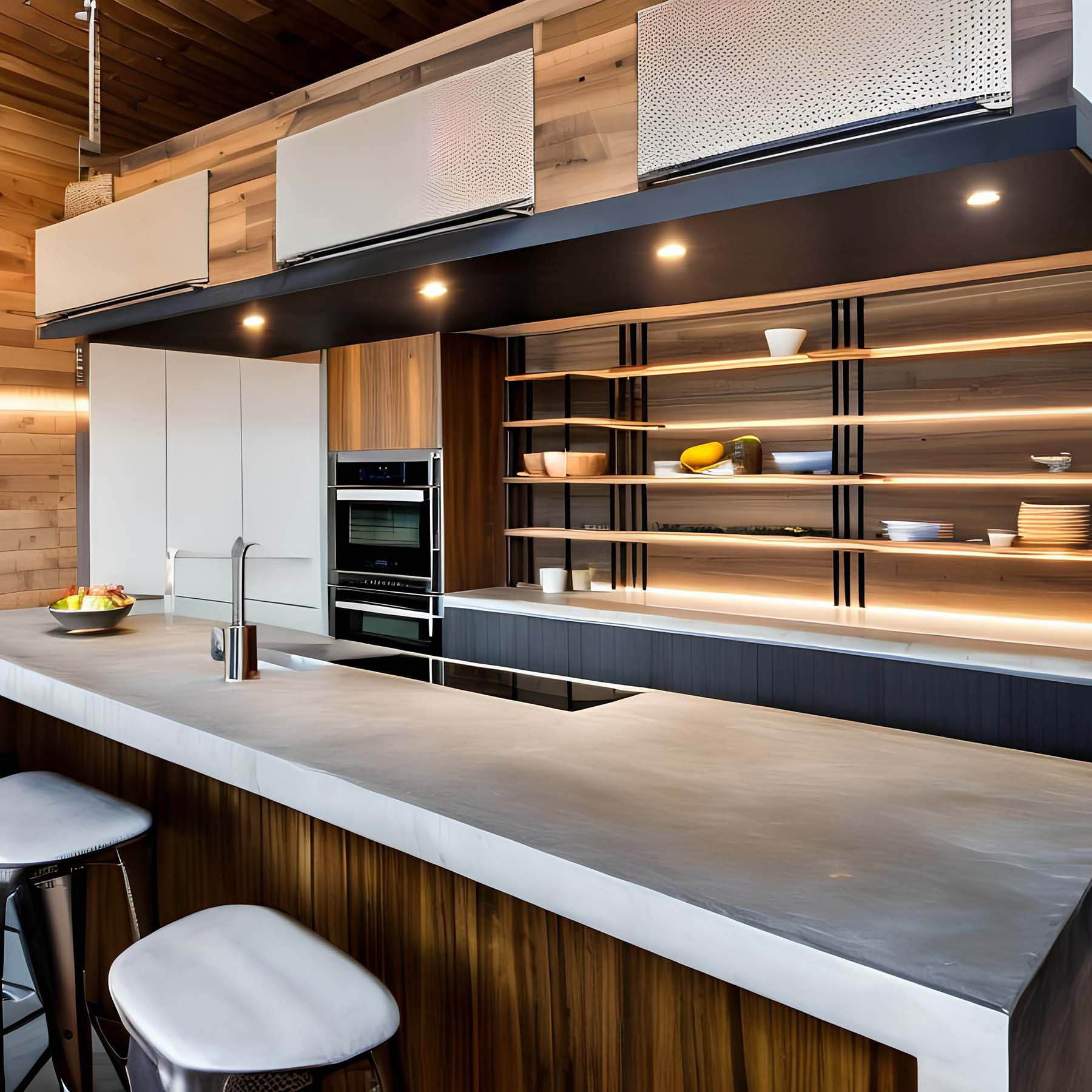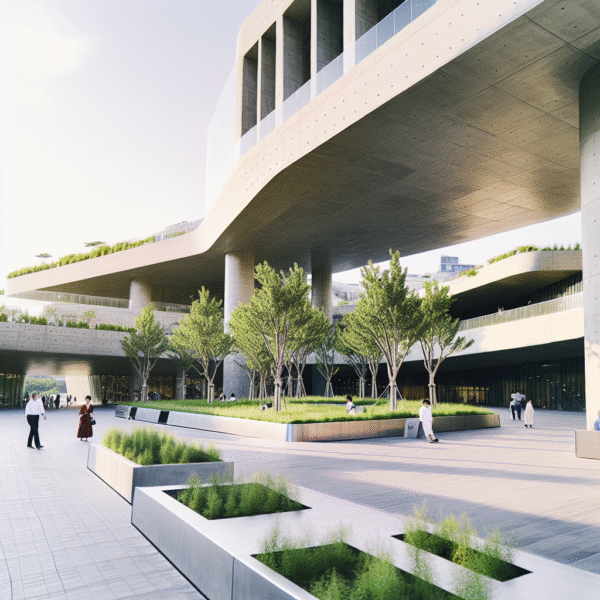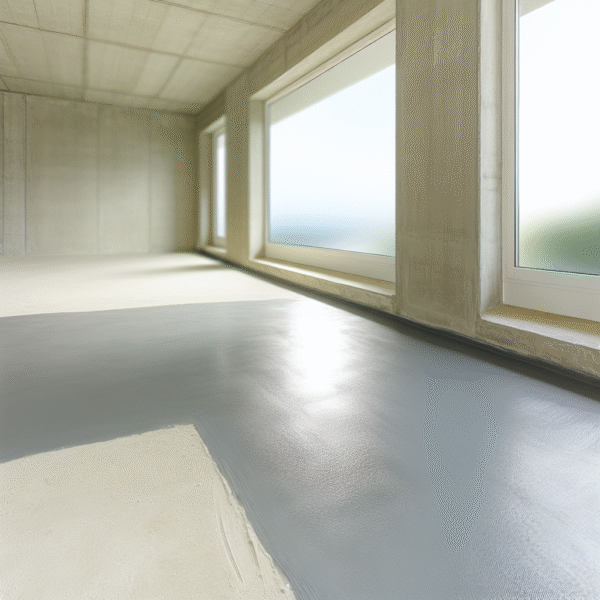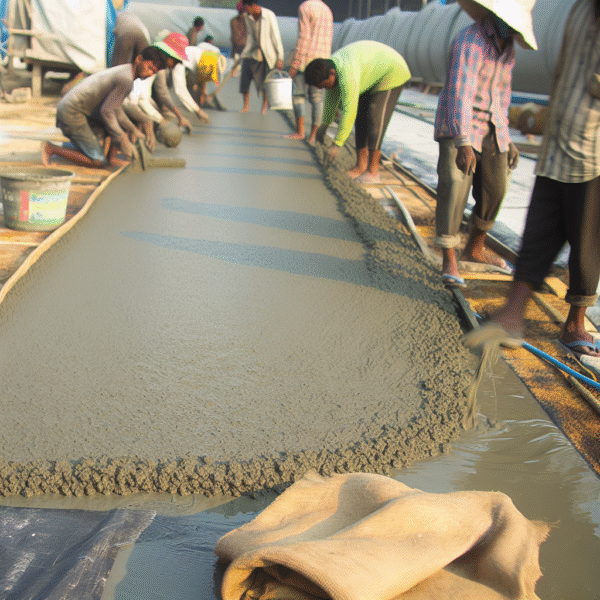Concrete countertops have gained popularity as a modern and stylish choice for kitchens, offering a perfect balance of aesthetics and functionality. Their design flexibility and durability make them a highly sought-after feature in contemporary homes. This guide explores the key elements of concrete countertops, including design tips, installation techniques, and maintenance advice to help you create a stunning centerpiece for your kitchen.
Designing Your Concrete Countertop
When it comes to designing your concrete countertop, you have a range of options. The color and texture can be customized to suit your style, whether you prefer a sleek, polished surface or a more rustic, textured finish. Edge profiles are another design element to consider, with options like bullnose, bevel, or waterfall edges available to complement your kitchen’s overall aesthetic. Additionally, you can personalize your countertop by embedding decorative items such as glass, stones, or shells for a unique touch. The thickness of your concrete countertop also plays a significant role in its overall design and appearance, allowing for further customization.
The Installation Process
The installation process of concrete countertops involves several key steps. First, you’ll need to form a precise and sturdy mold to pour the concrete into, ensuring a smooth, well-finished surface. Reinforcement is critical to improve the structural integrity of the countertop and prevent cracking. Once the mold is ready, you’ll pour the concrete and allow it to cure properly for a durable, long-lasting result. The final steps include polishing the surface to your desired finish and sealing the countertop to protect it from stains and damage.
Advantages of Concrete Countertops
There are numerous advantages to choosing concrete countertops. Their design flexibility allows for the creation of a personalized focal point in your kitchen, tailored to your style. Concrete is also highly durable, resistant to scratches and heat when sealed and maintained properly. For eco-conscious homeowners, concrete offers a sustainable material option that can be customized to fit your kitchen’s exact dimensions and design specifications.
Maintenance Tips for Concrete Countertops
Maintaining concrete countertops requires some attention. Regularly resealing the surface is essential to protect it from stains and moisture. When cleaning, use a mild soap and water solution, avoiding harsh chemicals that can damage the sealant. It’s also important to avoid exposing the countertop to extreme heat; always use trivets or hot pads to protect the surface from hot pots and pans.
Final Thoughts
Concrete countertops offer a unique and versatile solution for modern kitchens, blending beauty, durability, and endless design possibilities. With proper installation and maintenance, concrete countertops can become a timeless and functional feature in your kitchen, enhancing both its visual appeal and practicality.




